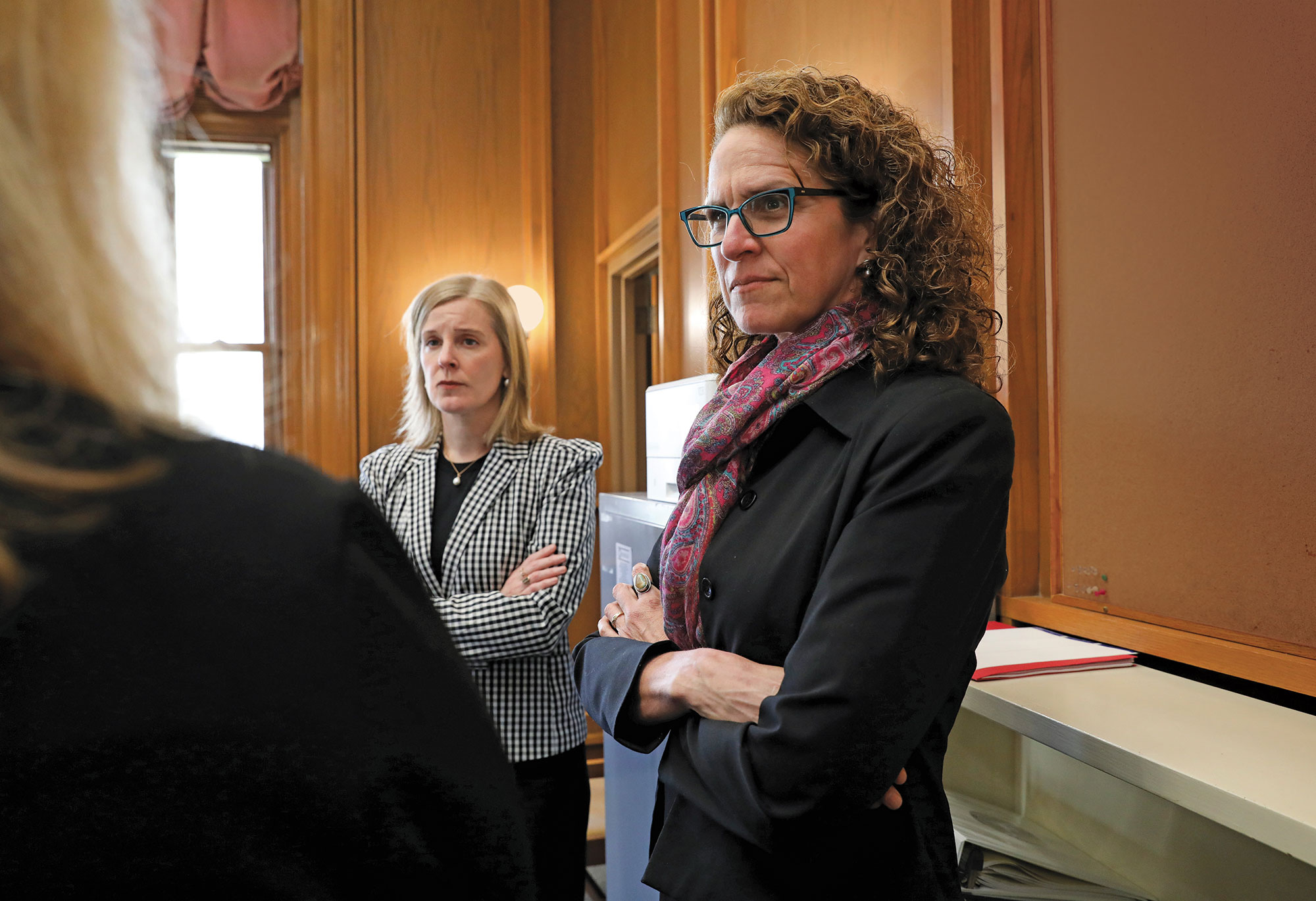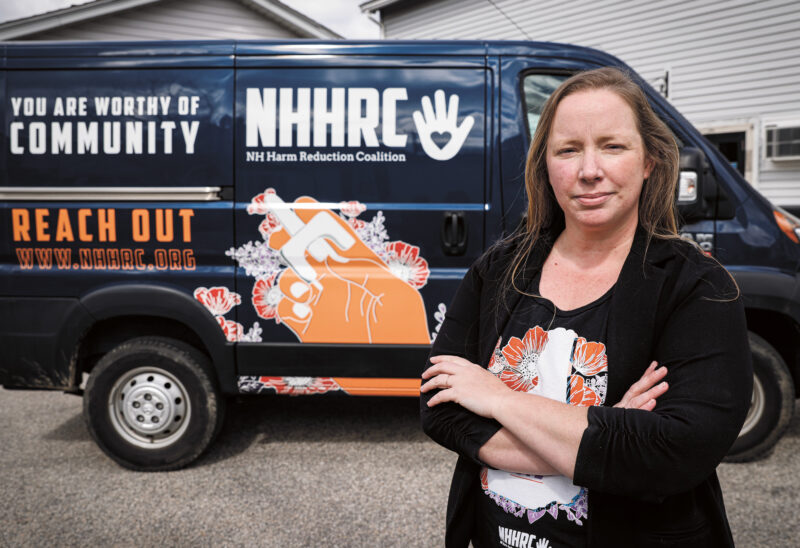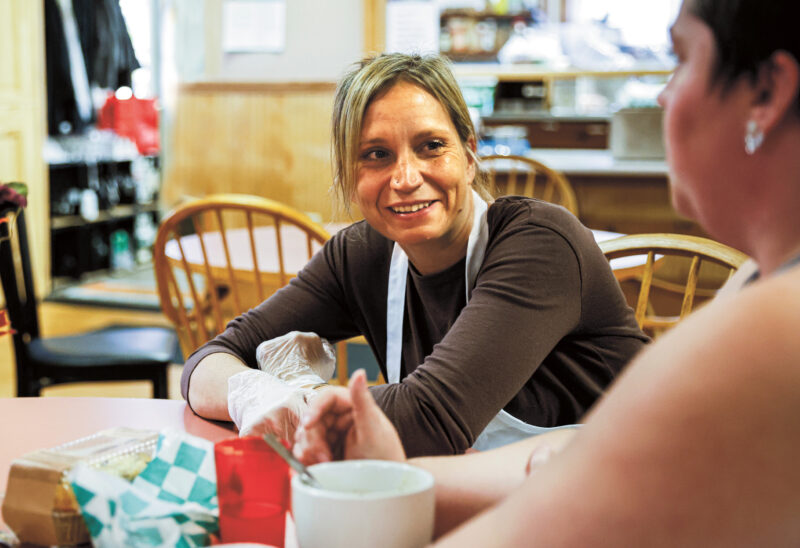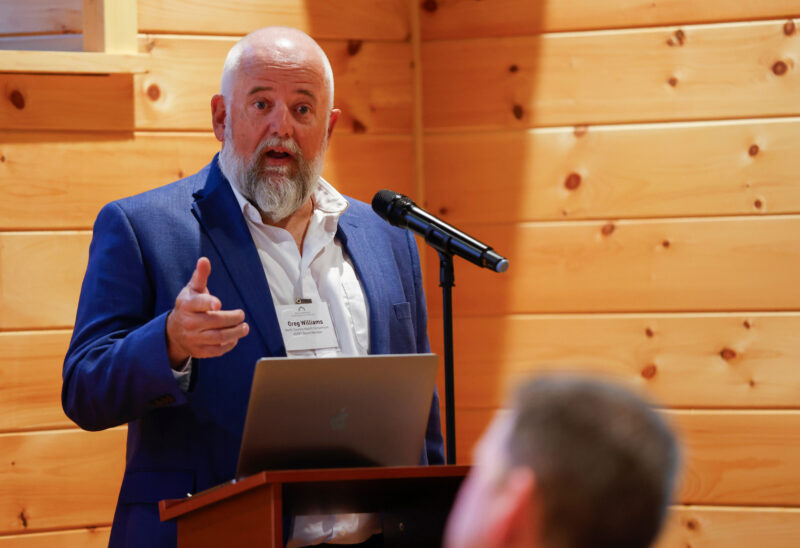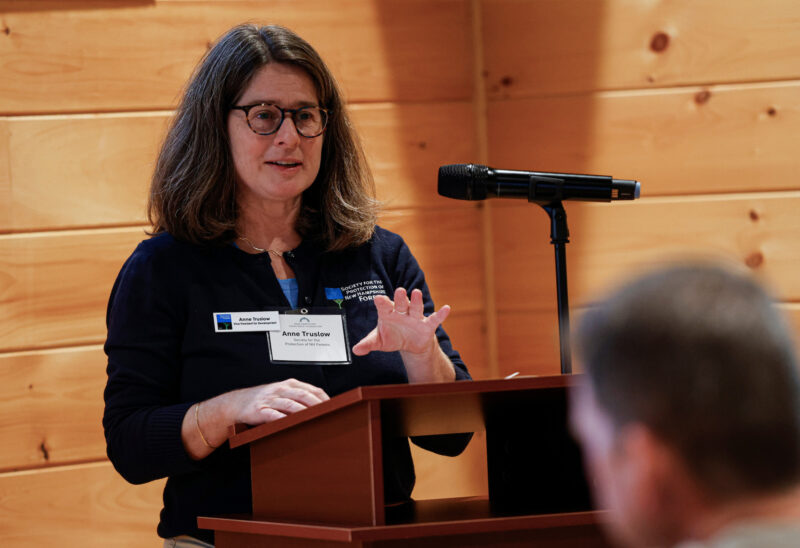Tens of thousands of people in New Hampshire cannot say with any degree of confidence that their families will have enough to eat tonight — or tomorrow, or next week. Maybe dinner will just be instant noodles for a while, and maybe adults will skip meals during school vacations so that their kids have enough.
“Food insecurity” is a U.S. Department of Agriculture term to describe that reality.
According to a February survey by the U.S. Census Bureau, 75,000 adults in New Hampshire reported that there had not been enough food to eat in their households in the past week. That is more people than live in Concord and Portsmouth combined. Feeding America estimates that one in 11 children in New Hampshire faces hunger.
As pandemic-era relief aid has wound down, the number of people experiencing food insecurity has risen. Direct-service organizations — including the New Hampshire Food Bank and hundreds of food pantries, soup kitchens and other nonprofits — are working diligently to get food to people who need it.
One nonprofit is boosting that critical work by focusing on the policies and systems that need to change to help families avoid food insecurity in the first place.
NH Hunger Solutions advocates to end food insecurity, improve access to nutritious food, and address hunger’s root causes. The organization has been key in building momentum and awareness to improve systems so more people have consistent access to nutritious food.
“We’re trying to look upstream and make sure that people aren’t hungry in the first place,” said NH Hunger Solutions Executive Director Laura Milliken, “so pantries and food banks only have to meet emergency needs — which is what they are meant for.”
One “upstream” area that is a focus for NH Hunger Solutions is the state’s low rates of participation in federal nutrition assistance programs — including the Supplemental Nutrition Assistance Program (SNAP); Special Supplemental Nutrition Program for Women, Infants, and Children (WIC) and free and reduced-price school meals. Far fewer people participate in those programs than are eligible for them — which means that grocery money is being left unspent while people go hungry. There are many reasons why: People might not realize they are eligible or that help is available, they might face barriers in the application process — and they may feel deep shame about asking for help.
“We’re trying to look upstream and make sure that people aren’t hungry in the first place so pantries and food banks only have to meet emergency needs — which is what they are meant for.”– Laura Milliken, NH Hunger Solutions Executive DirectorTweet This
Milliken said those barriers are “largely surmountable” — and NH Hunger Solutions is working on surmounting them.
NH Hunger Solutions hires community consultants who have experienced food insecurity to advise its work to address nutrition equity — and to participate in the regional food-access councils and coalitions that the organization supports, participates in and provides technical assistance to around the state. NH Hunger Solutions is also at the hub of a wideranging partnership working to create a nutrition equity plan for the state.
Tricia Wilcox of Portsmouth works as a “lunch lady” at her son’s elementary school — and advises NH Hunger Solutions. She sees families who are ashamed to apply for help, and families who need the help but just miss the eligibility cutoff.
One family, she said, always qualified for free and reduced-price school meals — and their three kids ate breakfast and lunch at school. Then mom switched to a night shift to better accommodate her kids’ schedules. The shift differential she earned meant the family no longer qualified for the program — but it was also not enough to cover the cost of buying breakfast and lunch at school. (For three kids, at Tricia’s school, weekday breakfast and lunch would cost about $300 a month.) She sees families who are waiting for their tax refunds to come in so they can pay off their lunch debt.
Wilcox herself was once hesitant to apply for reduced-price breakfast and lunch for her child — even though her family qualified at the time. The process felt daunting, and she was worried her family would be judged. She struggled to feel like she “belonged” amidst the affluence of the Seacoast. She did finally apply, and recalls the relief of “not having to worry about ‘where am I going to get that money from?’”
“I would like to see the poverty guidelines changed,” Wilcox said. “I don’t think that they are an accurate description of who is actually living in poverty. I want there to be less hungry people and less stigma about it.” NH Hunger Solutions is supporting schools and communities in expanding participation in breakfast and lunch programs. The state ranks 47th in participation in school breakfast programs among eligible children. When kids eat breakfast at school, their academic performance, behavior and health all improve.
New Hampshire participation also flags in the federal SNAP program. Only about half the people who are eligible for SNAP are enrolled. Participation has been shown to reduce food insecurity and correlate with better health for families.
NH Hunger Solutions was instrumental in advocating for a new law mandating that the state develop an outreach plan to educate people about SNAP eligibility and help them to apply. The plan is set to launch this year. NH Hunger Solutions successfully advocated for the state to increase eligibility for SNAP to families living at 200 percent of the federal poverty level. (The level was increased in January, from its prior cutoff of 185 percent of the federal poverty level.)
Foundation investment has helped NH Hunger Solutions grow. Milliken came on board in 2020, and the organization hired a fulltime deputy director in 2021. NH Hunger Solutions was able to secure significant additional funding as a result of the Foundation’s support. The organization now also has staff working on community engagement and child nutrition.
New Hampshire has among the highest median household income in the country and a low overall rate of poverty. But averages mask deep pockets of poverty, hunger and hopelessness that are the experience of too many Granite Staters.
“Let’s celebrate the economic advantages that many folks in New Hampshire have,” Milliken said, “but let’s try to make sure people aren’t hungry.”

